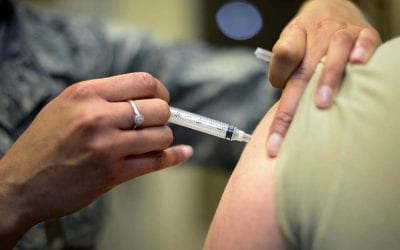
While I pay attention to what I eat and drink before and during air travel of any duration, it’s even more important to be careful when taking long duration flights, as well as “red-eye” flights.
Not only is it important to be careful about what you eat and drink during your flight, it’s also important to be cautious about what you eat and drink before your flight. What you ingest in the hours before your flight can affect your being blotted, more anxious than normal and more fatigued, with jet lag lasting longer than it might otherwise take to wear off.
By the time you arrive at the airport to begin your vacation or business trip, you’ve likely invested time in making important decisions about your journey. Eating and drinking well for flying should be part of your decision making.
What air travelers eat and drink can affect their digestion. They may feel bloated, arrive at their destination more fatigued than they should and stress levels sometimes increase.
In the early 1800s Anthelme Brillat-Savarin wrote what has been roughly translated as “you are what you eat.” However, that phrase doesn’t seem to have hit the American consciousness until 1940, when Dr. Victor Hugo Lindlahr, the host of a popular radio show about nutrition, wrote the book, “You Are What You Eat.”
If Dr. Lindlahr had written that book today, it might have been about food and flying. What travelers eat and drink will affect their state of mind and their health during their journeys.
At home, your hotel and certainly when you get to the airport, make the right eating decisions. Downing that oily pizza, or that gut-busting Philly cheese steak dripping with grease, smothered in onions and flowing with gooey cheese may taste amazing and be filling, but along with that super-sized soda, it may leave you bloated, cranky and feeling heartburn during your flight from beginning to end.
Even having a dinner preceded by a couple of cocktails, as seemingly simple as a large sirloin steak with broccoli and fries plus a couple glasses of wine, can cause an uncomfortable flight.
While traveling by air, no one wants to have indigestion or feel bloated. Wolfing down foods full of grease, sodium and saturated fats soon before flying or while in the air, should be on everyone’s “no-no” list. That kind of food, including many fried foods, coupled with sitting for hours in a cramped airplane seat, isn’t going to do your digestion any good.
Foods such as broccoli, onions, cabbage, peaches and carbonated beverages, sometimes called “gas giants,” should be avoided to prevent bloating and a very uncomfortable flight.
Bananas, berries, baked potatoes, pineapple and fish, are far better to eat prior to flying, and for some travelers may even improve their digestion and reduce bloating.
Many air travelers, even seasoned ones, find their stress and anxiety levels are up prior to and during their flights. Dehydration can cause stress and irritability, so drinking plenty of the right fluids before and during flights can make a difference in flight comfort. Foods such as celery, many fruits and vegetables, as well as whole grains can help, too. Staying away from diuretics such as alcohol, cola, tea and coffee can be a great help.
Let’s face it, air travel isn’t easy these days. Long flights can leave air passengers exhausted by the time they arrive at their destination. Food and drink which prevent air travelers from being able to rest and hopefully sleep on long flights, especially those “red-eyes,” should be avoided. Light meals, high in protein, are the best to aid air passengers sleep and be less fatigued at the end of their flights. Some of the best choices include fish such as salmon and halibut, turkey breast, low-fat mozzarella and cottage cheese, green beans and many nuts and seeds.
Eating light, high protein meals can help air travelers with jet lag, too.
Consuming alcohol and carbonated beverages can contribute to air traveler problems, especially getting sleep while flying. Carbonated beverages can boost bloating. The caffeine in coffee, tea and colas can prevent sleep. Non-carbonated juices and water are far better choices for air travelers.
Dr. Charles Platkin, known as the “Diet Detective,” a nutrition and heath advocate, advises that the preflight and inflight martini interferes with getting a good sleep and we all know the effects of caffeine on sleep.
When prevented from rest, relaxation and sleep, especially on long flights and “red-eyes,” passengers arrive more fatigued than they might have had they consumed more sensible foods and beverages.
Eat right. Drink sensibly. And, have a wonderful flight.
After many years working in corporate America as a chemical engineer, executive and eventually CFO of a multinational manufacturer, Ned founded a tech consulting company and later restarted NSL Photography, his photography business. Before entering the corporate world, Ned worked as a Public Health Engineer for the Philadelphia Department of Public Health. As a well known corporate, travel and wildlife photographer, Ned travels the world writing about travel and photography, as well as running photography workshops, seminars and photowalks. Visit Ned’s Photography Blog and Galleries.

